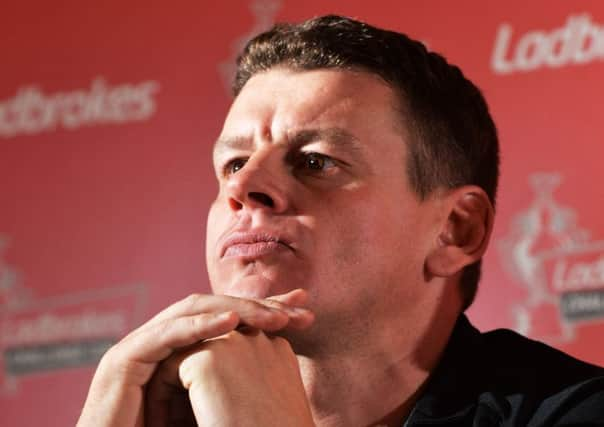Peter Smith: Hull boss Lee Radford talks a lot of sense regarding video calls


There’s no frills to him, but he says it as it is.
His reaction to Liam Watts’ headbutt which led to a red card and eventual move to Castleford Tigers was an example. Radford described it as “pathetic”.
A lot of other coaches might have thought that, but few would have said it.
Advertisement
Hide AdAdvertisement
Hide AdThough he is prepared to speak his mind, Radford is not a serial moaner when it comes to referees.
After Hull’s narrow defeat at Leeds Rhinos earlier this year, when some decisions went against his side, Radford refused to make an issue of the officiating in his post-match press conference, which would have been the easy option.
So when Radford does speak out on something, it’s worth listening to what he says.
Radford neatly summarised what a lot of people in rugby league are thinking when his patience snapped after last week’s derby at Hull KR.
Advertisement
Hide AdAdvertisement
Hide AdThat game, which Hull won 30-22, lasted more than two hours, with the opening 40 minutes taking 60 to complete.
Here’s what Radford had to say about it afterwards: “This isn’t sour grapes because we won, but what separates us from rugby union is the speed of the game.
“Why have we got an official on the field? We may as well just go upstairs all the time.
“Either employ a referee who is going to grow a pair or have a video referee in every game so at least we know what we’re getting.
Advertisement
Hide AdAdvertisement
Hide Ad“Too much is going up [to the video referee]. If that game isn’t on Sky, the referee has got to make those decisions himself.
“You’re almost dreading a Sky game.”
It is difficult to argue with any of that.
Neither of Leeds Rhinos’ Easter games was televised and they were more enjoyable because of that.
Did the referee get every decision right? Probably not, but did that spoil either contest? No.
Over-reliance on the video referee has ruined what was a revolutionary idea and it is spoiling rugby league, for both fans at the ground and those who watch from their armchairs.
Advertisement
Hide AdAdvertisement
Hide AdSupposedly, the wait for the ‘try’ or ‘no try’ ruling adds to the tension. Au contraire, it frustrates everybody, spectators and players alike.
Speeding the game up seems to be an obsession with the sport’s law makers, but the video ref’ does the exact opposite.
Last month, Leeds’ Sky-televised game at St Helens kicked off at 7.45pm, 15 minutes earlier than Salford Red Devils’ home clash with Hull, which was not broadcast. Which one finished first? It wasn’t the one which kicked off earliest.
That’s not all the fault of the video ref’. Half-times are longer at televised games and they often kick-off later than they should. Nobody objects to play being held up for treatment to injured players, but nowadays too many calls are being handed on when the referee could make his own decision, as he would have to if the live cameras weren’t present.
Advertisement
Hide AdAdvertisement
Hide AdClearly, referees are nervous about making a decision, for fear of getting it wrong. That’s understandable, but the current system – where they hand a decision on as either a try or no try – doesn’t help in that regard.
Video referees don’t seem to follow the protocol, which states there should be clear evidence to overturn an on-field call – and why does it take repeated views of the same camera angle to finally make a judgement? Surely 10 looks don’t reveal any more than two do.
The original idea of video officials was to correct obvious errors. That is no longer the case. Games are better without them, but Sky will not accept the system being scrapped. It therefore needs to be tinkered, to go back to its original purpose.
Much of the frustration comes from obstruction rulings, when tries are ruled out for what – to viewers – seems to be little reason.
Advertisement
Hide AdAdvertisement
Hide AdThe system would be improved by restricting it to in-goal decisions only, such as grounding and leaving everything else to the man in the middle.
Failing that, introduce a cricket or tennis-style system and allow both captains two appeals per game. That should speed things up.